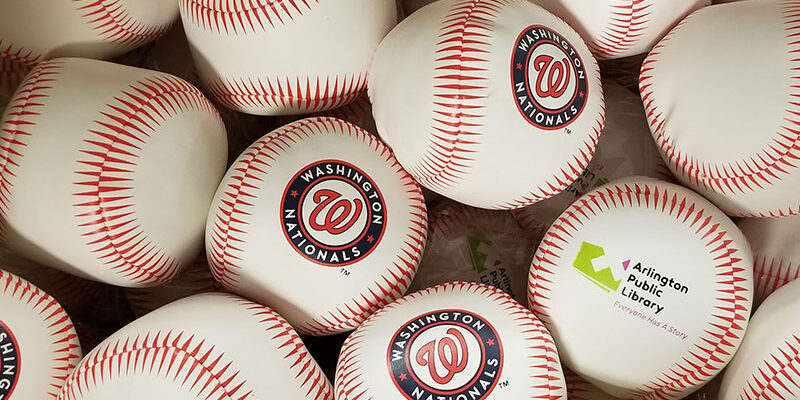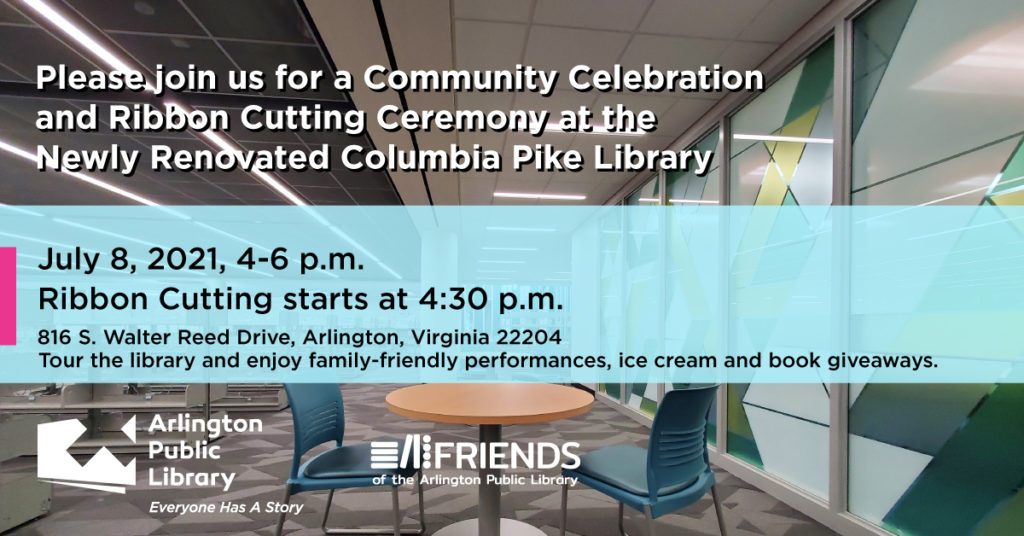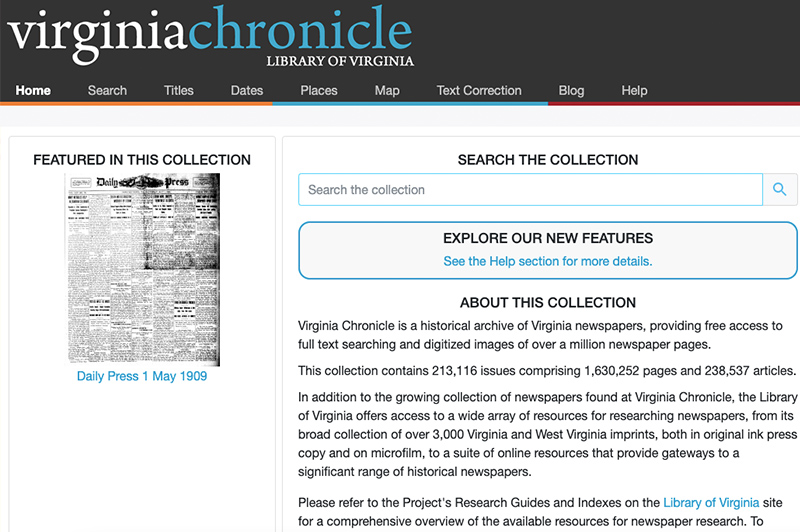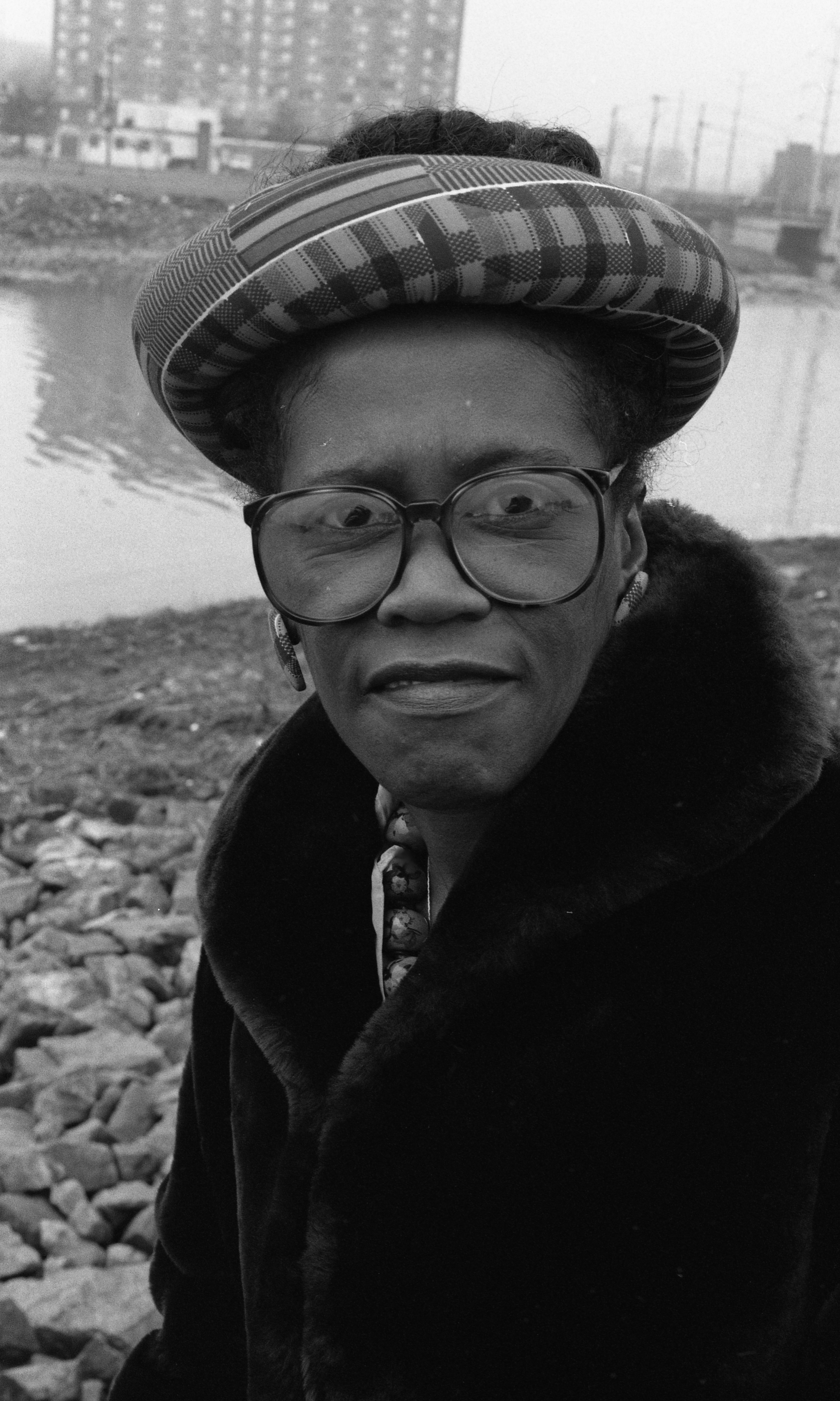RESOLVED: Due to a system outage, public Wifi, Copiers, Phones and Self-Check are currently unavailable at Westover Branch Library. Please check back for updates.
News
Get Homework Help with BrainFuse HelpNow
Are you struggling, frustrated, or feeling overwhelmed in general by your homework studying for exams or test preparation? You don’t have to go it alone.
Brainfuse HelpNow has tutors that can offer you personalized guidance on difficult math problems, offer feedback on your papers or college essays.
- Use the Writing Lab for more in-depth feedback and use Skill Surfer for test prep resources, practices test.
- Live help is available seven days a week, from 2 – 11 p.m. EST.
Video: Arlington Reads with Emma Brown
An Arlington Reads Signature Author Event.
A discussion of “To Raise a Boy,” a journalist’s searing investigation into how we teach boys to be men—and how we can do better.
In the course of her reporting in the wake of the #MeToo movement, Emma Brown interviewed hundreds of people—educators, parents, coaches, researchers, men, and boys—to understand the challenges boys face and how to address them. What Brown uncovered was shocking: 23 percent of boys believe men should use violence to get respect; 22 percent of an incoming college freshman class said they had already committed sexual violence; 58 percent of young adults said they’ve never had a conversation with their parents about respect and care in sexual relationships. Men are four times more likely than women to die by suicide. Nearly 4 million men experience sexual violence each year. “To Raise a Boy” combines assiduous reporting, cutting-edge scientific research, and boys’ powerful testimonials to expose the crisis in young men’s emotional and physical health. Emma Brown connects the dots between educators, researchers, policy makers, and mental health professionals in this tour de force that upends everything we thought we knew about boys.
Oral History: Public Shoe Store
Public Shoe Store in Clarendon was one of the neighborhood’s longest-running and most recognizable businesses, operating from 1938 to 2016. The business was operated by brothers Dr. Sholom H. “Doc” Friedman and Joel Friedman for much of that time, after being founded by the Friedmans’ father Samuel Friedman in the 1930s. Dr. Friedman was a trained podiatrist, and the business was known for specializing in comfort shoes and custom fitting. Dr. Friedman passed away in 2019.
The original location of the store was where the Clarendon Metro station currently stands, but when construction came through the neighborhood the business moved to its longstanding storefront at 3137 Wilson Boulevard. The shoe store was also a meeting place for members of the Arlington-Fairfax Jewish Congregation (now Etz Hayim), who would gather on the second floor of the shop.
Advertisement in the Northern Virginia Sun for Public Shoe Store, October 31, 1968. Image courtesy of Virginia Chronicle.
In this oral history, Dr. Sholom “Doc” Friedman and two of his children, Karen Widmayer and Mark Friedman, discuss the history of the shop and the impact it had on the Arlington community. Other details in the interview include how the children often ran the cash registers, and how the shop worked with President Carter's family in the 1970s. Here is a brief excerpt from the interview:
Narrator 1: Dr. Sholom “Doc” Friedman
Narrator 2: Karen Widmayer
Interviewer: Virginia Smith
Date: March 8, 2015
Virginia Smith: Okay. So how does the building work? What do you do? You set up the retail place in the main floor?
Sholom Friedman: Right.
VS: What’s downstairs?
SF: It used to be stored shoes, but I’ve been decreasing the stock now.
VS: Towards the end of this—the life of the business.
SF: Right.
VS: But that was full downstairs—was inventory.
SF: Right.
VS: And upstairs was—?
SF: Upstairs we had a little balcony.
Karen Widmayer: Yeah, the main floor is all selling floor and stock. And the basement had all stock and some storage. And then there’s a mezzanine level that’s about a quarter of a floor-size up in the back, and that was just some storage space.
SF: Storage, right.
View of Wilson Boulevard from east to west, including the large Public Shoe Store sign, 1991.
VS: So it was all your dad [Samuel Friedman] needed? Large enough?
SF: Oh, yeah. It was a pretty big operation back then.
VS: Sounds like it. What decade would you call your heyday, the best years, or the best decades?
SF: Probably after the war.
VS: So the ‘40s and ‘50s when families were moving and growing and all that sort of stuff.
SF: Right.
KW: Even when I worked there, I mean, there’d be ten or fifteen numbers pulled, people sitting and waiting. I mean, it was crazy on Saturdays.
VS: That’s good business—that was a Saturday.
KW: Yeah, that was still ’60—well, I was—started working there when I was about seven, so that’s late ‘60s and into the early ‘70s. I think at that point, that’s when things started changing a little bit with Arlington and the retail. But the businesses stayed.
The exterior of Public Shoe Store around the time of its closing in 2016.
The goal of the Arlington Voices project is to showcase the Center for Local History’s oral history collection in a publicly accessible and shareable way.
The Arlington Public Library began collecting oral histories of long-time residents in the 1970s, and since then the scope of the collection has expanded to capture the diverse voices of Arlington’s community. In 2016, staff members and volunteers recorded many additional hours of interviews, building the collection to 575 catalogued oral histories.
To browse our list of narrators indexed by interview subject, check out our community archive. To read a full transcript of an interview, visit the Center for Local History located at Central Library.
New! Complete Summer Reading, Win 2 Tickets to a Washington Nationals Game!
Exciting News for Summer Reading Participants!
This year, the Washington Nationals are offering each reader who finishes Summer Reading one voucher for an upcoming baseball game. Each voucher is good for two free Nats tickets, while supplies last.

How Does It Work?
Register for Summer Reading in the Library App or use a paper reading log.
Track your reading until you get to 30 days. You can't read too little or too much on any day. Just track that you've read that day. And you don't have to read for 30 days in a row. You can take days off! Just read until you get to 30 days total.
Once you have read for 30 days, pick up your voucher starting July 15 at open Library locations, while supplies last!
About Nationals Tickets
How / when do I get my Washington Nationals ticket voucher?
Nats tickets vouchers will be available at open Library locations as of July 15.
How do I redeem my voucher for 2 tickets to a Washington Nationals game?
Go to nationals.com/summerreading and enter the code given to you by the Library.
Which Washington Nationals game dates can I choose from?
You will be able to view the available home game dates on the Washington Nationals redemption site.
An (Un)familiar Tune: Arlington’s Song
Though many may not know the words to this reverential tune, Arlington has had an official song for more than 50 years.
The County Song Debuts
“Arlington,” the County’s official song, was adopted unanimously in October 1970 by the County Board. The musical occasion was marked with a performance of the tune from a chorus of the Masons’ International Order of Job’s Daughters, who were dressed in 18th-century period costume. 10,000 copies of the sheet music and lyrics were later distributed by the Chamber of Commerce throughout the County.
Agenda for the October 3, 1970, debut of the Arlington song (see item No. 3). From the October 1, 1970, issue of the Northern Virginia Sun.
The song was composed by the Reverend Ernest K. Emurian (1912-2004), who from 1962 to 1981 was minister of the Cherrydale Methodist Church. In addition to his ecclesiastical duties, Emurian was also known for being a musician, poet, and writer, and wrote geographically inspired tunes about the Virginia cities of Portsmouth and Lynchburg in addition to Arlington, and penned multiple books about national songs and hymns. He was quoted as saying “If a place is worth living in, it’s worth writing a song about.”
Read: The 2015 County article “Official ‘Arlington’: Song Sung Blue and White at 45” delves further in detail about the 1970 Arlington song and Reverend Emurian.
Sheet music and lyrics for the 1970 song “Arlington,” by Ernest Emurian.
The song caught a second wind in the 20th century when in 2000, the County Board reintroduced the tune with a performance featuring some of the daughters of the original Daughters chorus who had performed the 1970 debut of the song. And what might be called a third resurrection occurred in 2016, when Arlington TV recorded and aired a performance with some of the members of the original 1970 chorus.
Watch: The 2016 performance of “Arlington.”
A Prequel Tune
Possibly even more obscure than the official song is a precursor to that 1970 tune written in 1938, though this version was never formally adopted as a piece of official County music. In August 1938, members of the local Hoffman family orchestra presented their song, “Arlington,” to the Chamber of Commerce. The tune was composed by Theodore G. Hoffman, who wrote the song with the intention for it to be used to “’ promote the public interest in and welfare of Arlington County.’”
Hoffman was a German immigrant who performed with his three sons, and who had also composed songs used by the U.S. Army during World War II along with other patriotic compositions throughout his career. A 1938 article describes the song as a march, with the lyrics paying homage to “businessmen, the neighborly spirit of the homeowners, the healthy climate, the atmosphere of happiness and the beauty of Arlington scenery.”
Photo from August 5, 1948, Northern Virginia Sun article by Margaret Troxell about T.G. Hoffman, who composed an early song for and about Arlington.
Modern Songs About Arlington
A few mainstream songs from recent years also reference Arlington, such as the Foo Fighters’ “Weenie Beenie,” named after the beloved County eatery, or “Arlington” by Fairfax-based band Emmet Swimming off of its 1996 album Arlington to Boston. However, neither of those tunes quite capture the detail and charming local specificity of the County’s official song.
Do you have a question about this story, or a personal experience to share?
Use this form to send a message to the Charlie Clark Center for Local History.
Center For Local History - Blog Post Message Form
Do you have a question about this story, or a personal experience to share? Use this form to send a message to the Center for Local History.
"*" indicates required fields
Learn a New Language with Mango
Learn a new language or brush-up current skills on easy-to-use interface that lets you learn at your own pace. Includes over 60 language courses and English (ESL) materials for native speakers of 20+ languages.
Create a free account to track your progress. Learn at your desk or on the go with the free Mango app.
Mango courses are effective for just about anyone who is old enough to read!
Celebrate the Newly Renovated Columbia Pike Library
Community Celebration and Ribbon Cutting Ceremony
Thursday, July 8, 4 - 6 p.m.
Columbia Pike Library
816 S. Walter Reed Drive
The public is invited to attend the grand opening and community celebration of the newly renovated Columbia Pike Library on Thursday, July 8, 4 - 6 p.m. Join members of the County Board, the County Manager and Library Director Diane Kresh in the ribbon cutting ceremony, followed by family-friendly events, music and free ice cream, and a tour of the transformed Library Branch.
"The renovated Columbia Pike Library will resume its role as a community anchor, welcoming of everyone. We are delighted with the new, brightly lit spaces and can’t wait to roll out popular programs like storytime," said Library Director Diane Kresh.
The Columbia Pike Library renovation has been a successful partnership between Arlington Public Library and Arlington Public Schools. The updated Library Branch features 11,895 square feet of space, state-of-the-art furnishing, shelving for 20,000 collection items, free WiFi, 20 computer stations, four modern meeting rooms with AV accessibility and a new laptop bar. The building offers shared multi-use spaces and will be a great community asset for Arlington residents and visitors alike.
Columbia Pike’s updated hours and opening service availability will be published on July 1.
Grand Reopening Program Schedule
- 4:00 p.m. Witness a magical performance by basketball star Spinny Johnson, known for his upbeat trick shot artistry.
- 4:45 p.m. Join us for the Ribbon Cutting Ceremony with the members of the County Board, the County Manager and Library Director Diane Kresh
- 5:00 p.m. Dance to the music of Arlington’s The Sunshine Gang, a classic rock inspired band certain to kick off your summer!
Festivities include:
- Free books and giveaways from the library bookmobile, The Truck.
- Enjoy an icy treat from the Kona ice truck.
Visit the Library calendar to RSVP for an event reminder.
This event is sponsored in part by the Friends of the Arlington Public Library.
The Columbia Pike Library is located at 816 S. Walter Reed Drive, Arlington, Virginia 22204.
Search Thousands of Historic Arlington Papers Online for Free
Discover Arlington's history and browse newspaper content online from 1935 to 1978.
During the past year, Arlington Public Library’s Center for Local History (CLH) has been working with the Library of Virginia (LVA) to make five decades of Arlington research material available online.
Spanning the years from 1935 to 1978, the materials include historic articles, photos, and news clippings from four Arlington newspapers: the Columbia News, the Daily Sun, the Northern Virginia Sun and the Sun.
Previously, these publications were only available in the Center for Local History as microfilm and digital scans, which were not easily searchable.
These newspapers are a fantastic resource for historians, teachers, genealogists and anyone curious about Arlington's past through the eyes of local journalism.
“Delve deeper into your family history, find information on the transformation and growth of Arlington and discover more of its unique history,” said Arlington Public Library Director Diane Kresh.
The free news archive is 100% keyword searchable by location, date, title and issue and features a clipping feature that allows researchers to save an image or text block of an article.
To access the new source materials, visit the LVA ‘s Virginia Chronicle, which is a large online depository for historic newspapers from across the Commonwealth.
The CLH collects, preserves and shares historical documents that tell the history of Arlington County, its citizens, organizations, businesses and social issues. The CLH operates the Research Room at Central Library and the Community Archives program.
Joan Cooper: Taking a Stand

Join us for a series of stories from the Center for Local History highlighting members of our community who made a difference in ways that helped shape our history and created positive change.
Their voices were not always loud, but what they said or did had a significant impact on our community.
Joan Cooper
Joan Cooper (1940-2014) was an Arlington social and civic activist, community leader, and passionate anti-drug campaigner. Born and raised in Arlington’s Green Valley/(Nauck) community, Cooper first became an activist in the 1960s as a member of the Action Coordinating Committee to End Segregation in the Suburbs (ACCESS). In July 1966, ACCESS participated in sit-ins and pickets demanding that fair and equal housing opportunities be made available to all apartment renters in Arlington County.
Shifting her focus to her immediate community, Cooper tackled issues of drug abuse, crime, and poverty/unemployment, worked to help drive out drug dealers, sought to increase and provide treatment and counseling for addicts, and endeavored to find positive alternatives and activities for young people.
She challenged her community to make changes as well, stating, “People have to realize, that we as community members have to do our job, too.”
In 1970 Cooper led a series of marches and held informal “rap sessions” in Green Valley, focusing on the dangers and extent of drug abuse in the community. She also founded an antidrug facility called the Community Inn, which functioned as a counseling and treatment referral center.
With her message of “Be persistent, consistent, and insistent,” Cooper helped launch an initiative called “Crackdown on Drugs” in July of 1992. Cooper’s dedication and leadership in this campaign were hailed by then-President George H.W. Bush upon his visit to Drew Model School. Her efforts included driving individuals to drug and alcohol detox programs, helping to patrol corner blocks of the Green Valley neighborhood, and serving as a liaison between residents and police.
In response to what Cooper and others in Green Valley felt was often an inadequate police presence in the area, the Community-Based, Problem-Oriented Police (CB-POP) unit was established at 2430 S. Kenmore St. in March 1992 because of her advocacy.
In that same year, she was named a Notable Woman of Arlington by the County’s Commission on the Status of Women. The Arlington Community Foundation continues to maintain a fund in Cooper’s name which supports a variety of endeavors, including student scholarships, sports programs at local schools, and repair efforts for Lomax A.M.E. Zion Church.
In 1993, Cooper was the first recipient of the William Newman Jr. Spirit of Community Award, given by the Arlington Community Foundation. She also received a William Brittain Jr. Community Appreciation Award from the Arlington branch of the NAACP. In addition, she was a member of the United Way of the National Capital Area and remained an active presence in her community until her passing in 2014.
Do you have a question about this story, or a personal experience to share?
Use this form to send a message to the Charlie Clark Center for Local History.
Center For Local History - Blog Post Message Form
Do you have a question about this story, or a personal experience to share? Use this form to send a message to the Center for Local History.
"*" indicates required fields

















